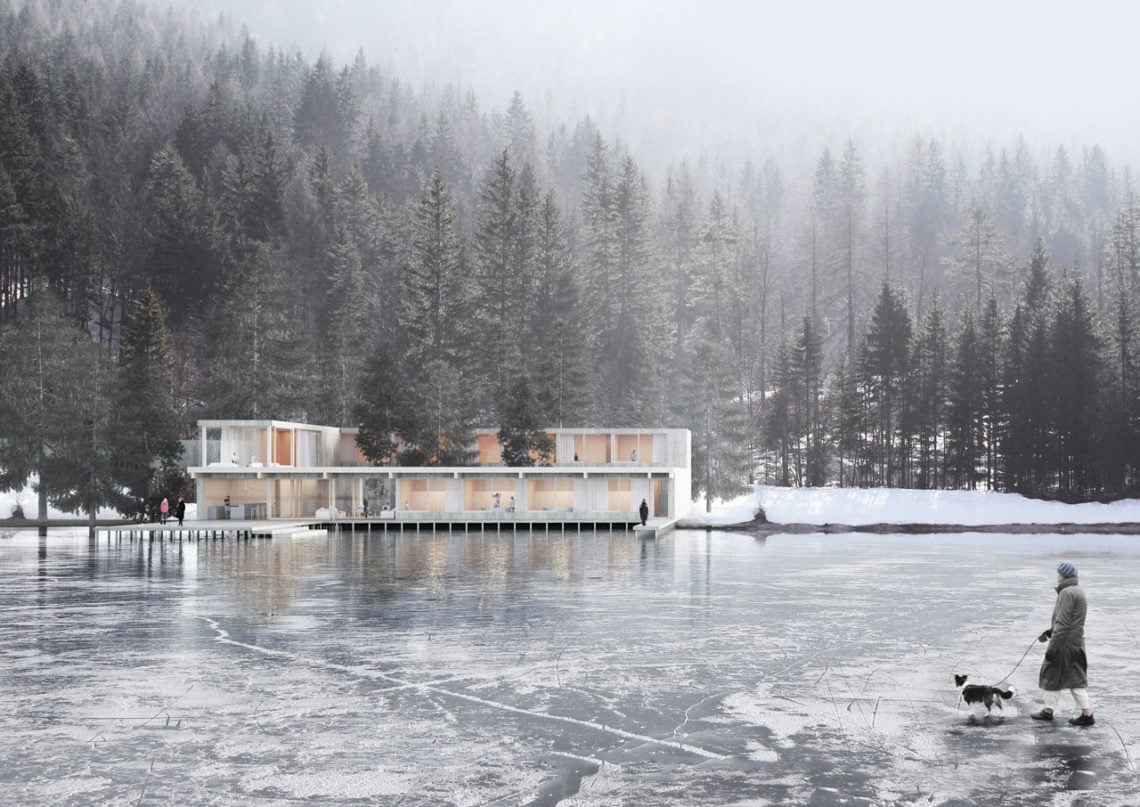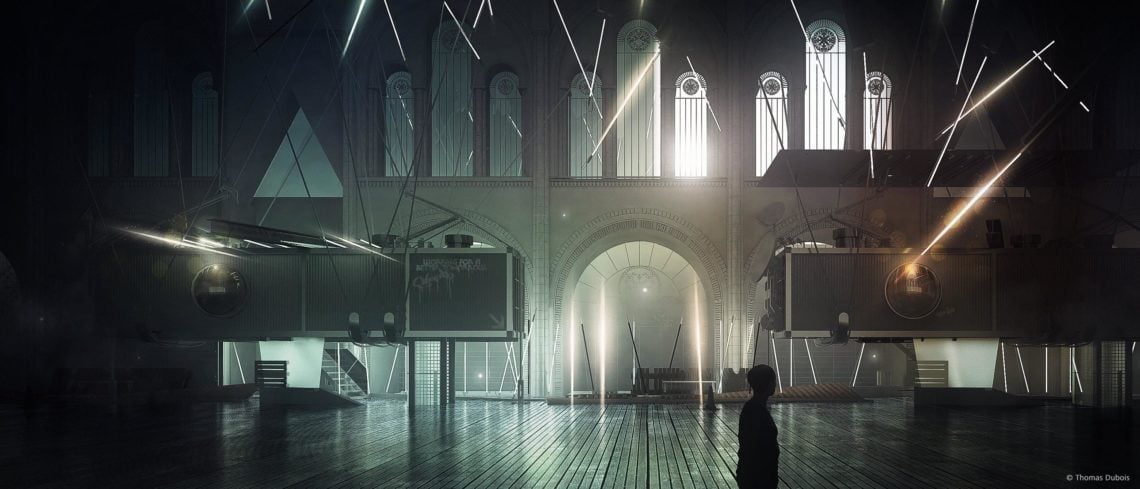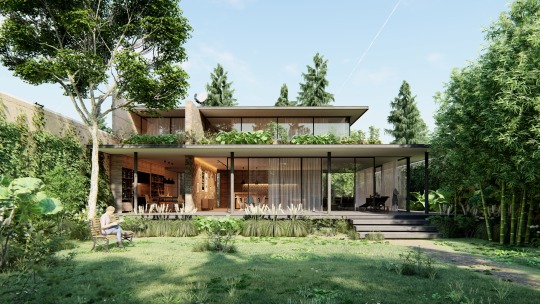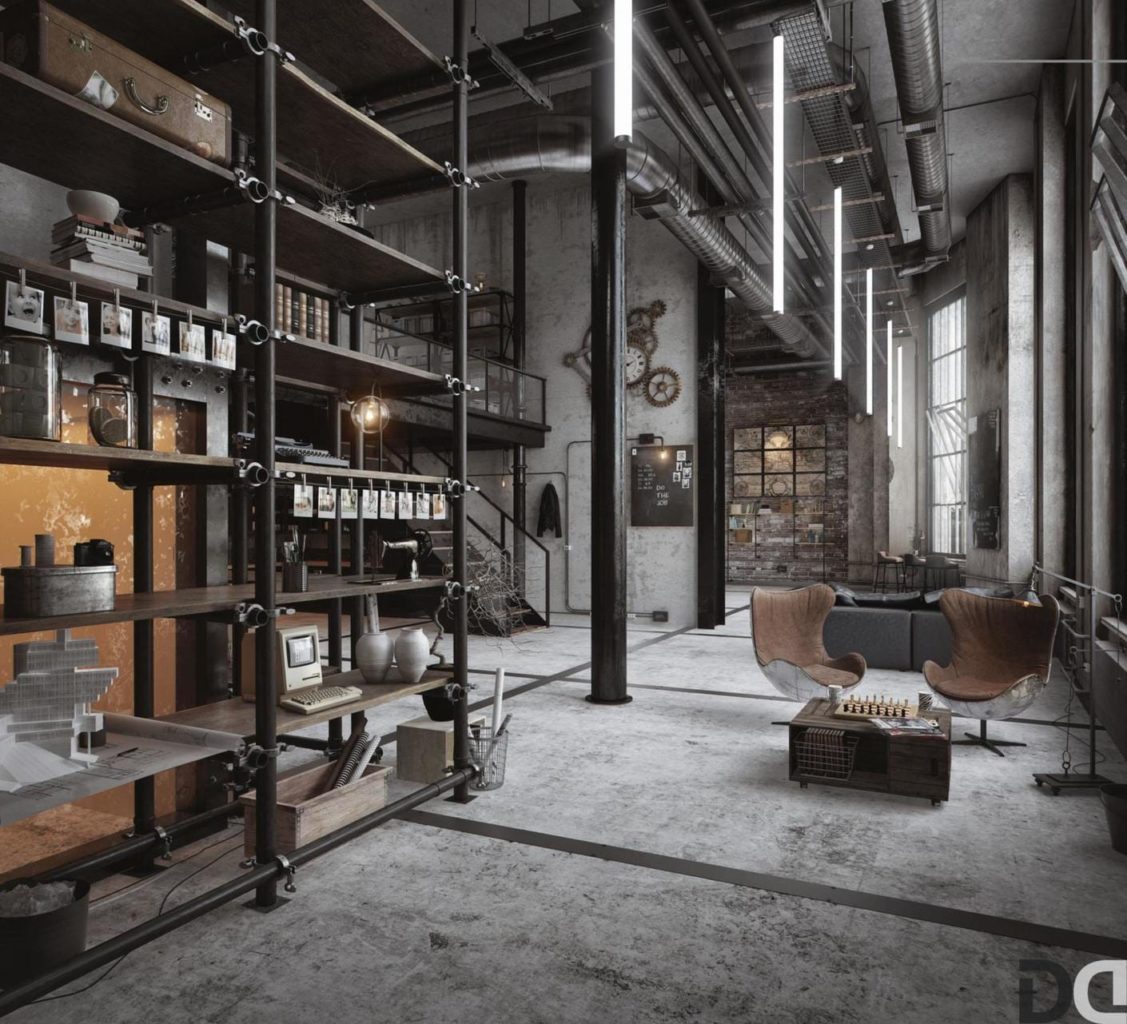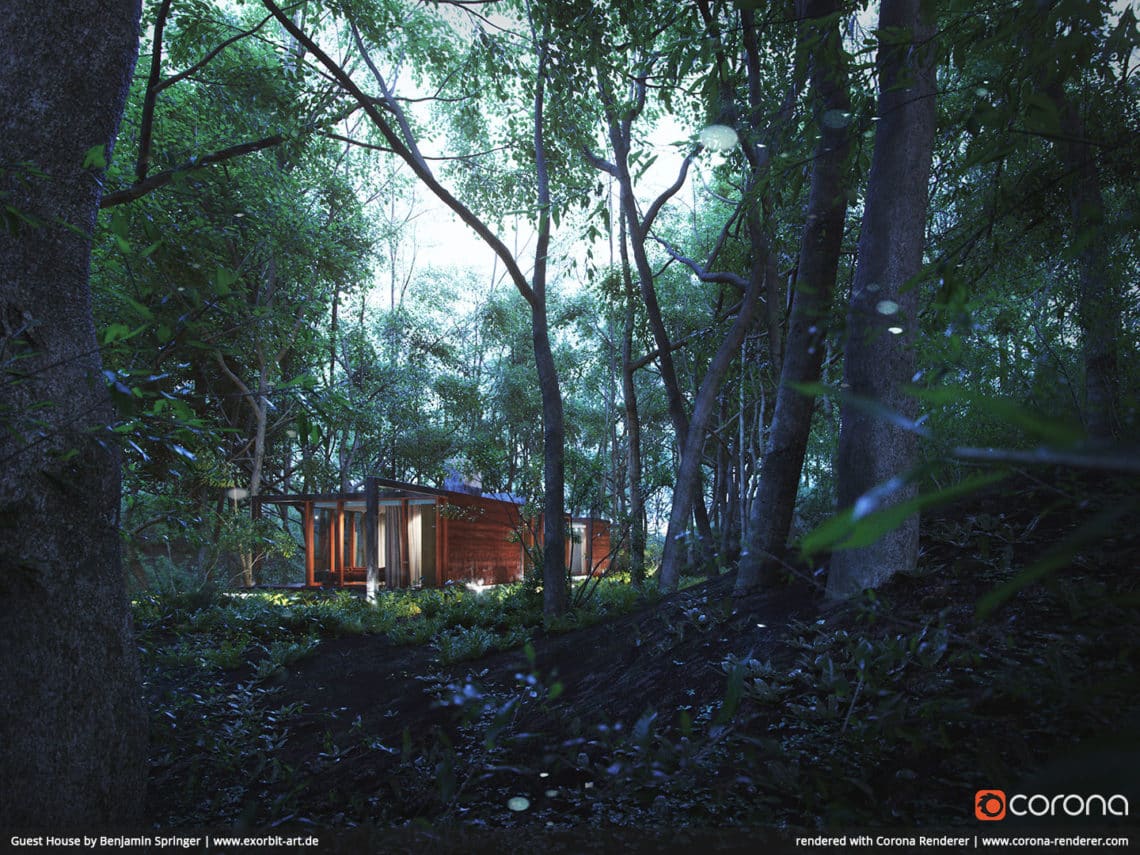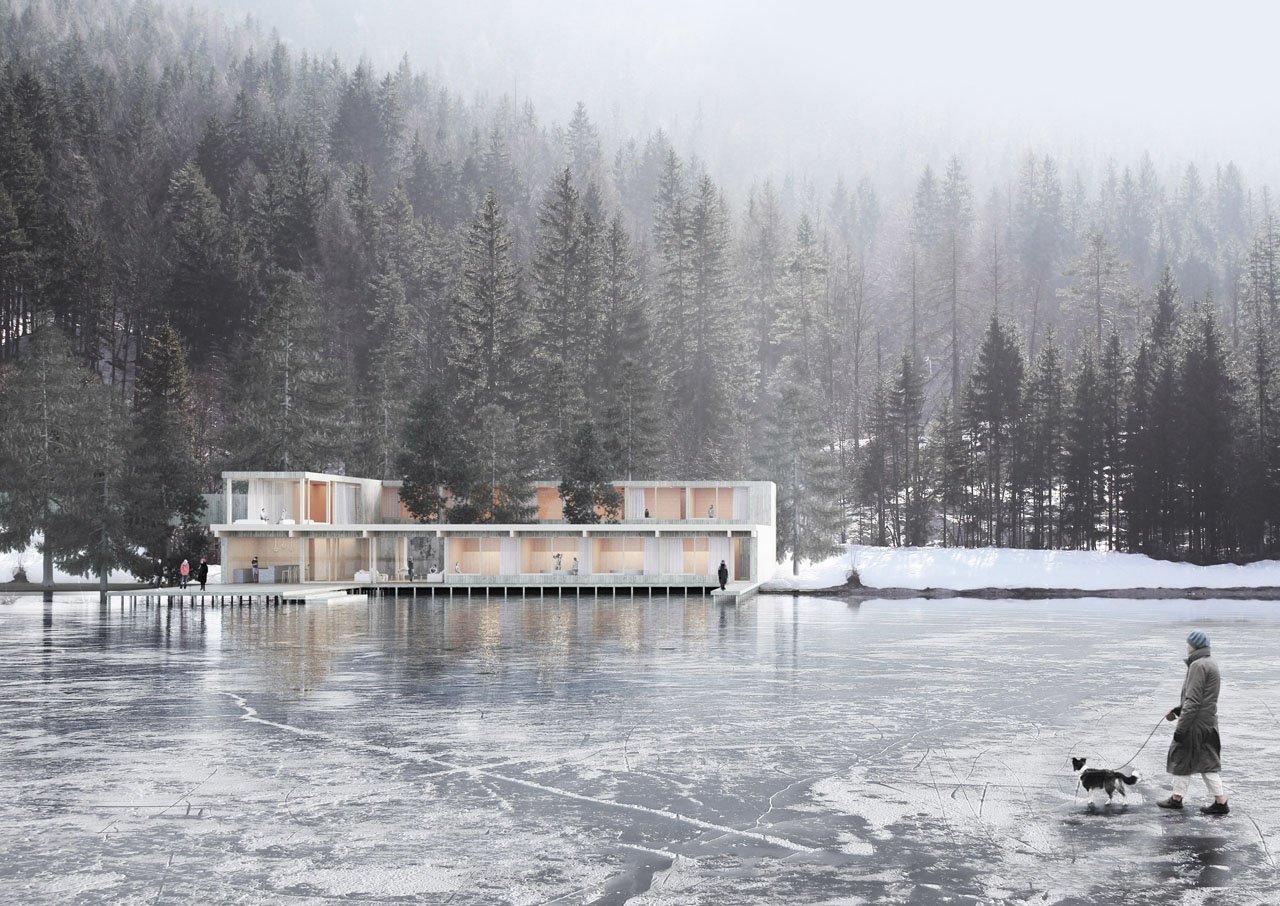Studying architecture isn’t all about drawing building designs on drafting tables. With modern computers, the entire plan of a building can be rendered in a computer and checked for structural and design flaws before it even leaves the drawing board. This is more efficient, less wasteful, and a lot more convenient as well.
But to do this, you’re going to need a rendering software. This is what makes those designs into reality. Well, virtual reality anyway. With that in mind, here are some of the best rendering software for architects on the market that seriously deserve more recognition.
Best Rendering Software for Architects
1. Blender
There’s no complete list of rendering software without Blender on the list. There’s a good reason this is the renderer of choice for so many architects.
But why is it so popular? For the very good reason that it’s free. But just because it’s free doesn’t mean it’s useless. Quite the contrary, it’s one of the most powerful rendering tools that you can get your hands on.
With a plethora of features to provide you with any tool that you need to design houses, bridges, skyscrapers, and more, this is one of the complete rendering softwares on the list.

Image via creativeshrimp.com
There is somewhat of a slight learning curve, but that’s easily solved with a few hours tinkering around with it.
Best of all, it’s got one of the most capable and helpful communities on the Internet. If you’re stuck at something, chances are there’s someone in the community that will help you, or there’s already a resource out there that’s got the answer you need.
- Being open source, it’s free to use and distribute
- Extremely capable renderer
- Resourceful and helpful community
- It’s got a learning curve that does take time to master

Image via creativeshrimp.com
2. Maxwell
Another software heavyweight on this list is Maxwell. Most architects would know of this software. And this is another one that’s also free to use and distribute. Maxwell combines an aesthetic user interface with a powerful set of rendering tools for everything that you may need in your designs.
And it’s been on the market for a very long time, making it one of the most supported software on the list. If you’re worried about long-term support and ease of use, then it makes sense to take a look at Maxwell. The community behind it is also helpful and supportive should you run into anything that you need help with.

Image via nextlimit.com
But one of the best features about Maxwell is that it’s incredibly simple to learn. A lot of architecture students start off with Maxwell before even moving onto other software just because of how simple it is to use. This lets them understand and use other software without needing to relearn everything from the beginning.
Featured Image via nextlimit.com
- Open source software with great community support
- Long presence in the market provides a plethora of resources for support
- Easy and simple to learn for new learners
- A bit slow at rendering
3. Octane Render
True to its name, Octane Render is one of the best rendering software on the market, packing a truly powerful rendering engine with a ton of features at your disposal. If you’re already familiar with the rendering landscape, then it might be time to switch to Octane Render from other previous free software.
One of the biggest advantages of Octane Render is the rendering engine, which is incredibly powerful and a lot faster than traditional free software.
A relatively new entrant to the world of rendering software, it’s earned quite the reputation for itself from students and professionals alike.

Image via home.otoy.com
This isn’t necessarily the best option to choose from if you’re looking for something cheap since a single license costs $399. But if you’re a professional and need one of the best renderers on the market for your work, then it makes sense to purchase this and boost your career prospects. Remember to be familiar with most other renderers, and you should be good to go.
- One of the fastest rendering software on the market
- Powerful set of tools
- Large pool of materials and textures on hand
- At $399 for a license, it’s not cheap for student architects
4. Autodesk Revit
Autodesk Revit is another name that needs no introduction in the rendering community. It has one of the most powerful rendering engines on the market. It’s also got a powerful set of tools and a wide range of textures and models that you can play around with.
Also, you’re getting great customer support and even better community support. All of this makes this one of the best professional rendering software out there if you need something for professional use.
The BIM functionalities beyond simply make it one of the most extraordinary software one can learn and as Autodesk happily offers free educational licenses to students, it is accessible too ! Yes, Revit is not necessarily about rendering first hand but it does a decent job and considering how good it is at all the rest, it simply must be present in this list.

This product is marketed to professionals who already know what they’re doing and need this for their daily job. So, if you’re in the market for a soft that can realize pretty much everything, then this is what you should be taking a look at.
- One of the most powerful architectural programs on the market with decent rendering capabilities
- Impressive array of tools and textures on hand
- Free license for students
5. Cinema 4D
Cinema 4D
No products found.
Cinema 4D is one of the lesser known products in this list, and that’s a shame. It’s got a decent set of features that most architects will find more than satisfactory. One of the biggest reasons it’s on this list is because of just how powerful it is.
If you spend enough time to learn all the tricks and hacks of Cinema 4D, then you’ll find this works way better than most of the other options on this list.

Image via maxon.net ; © Thomas Dubois
One other reason to choose Cinema 4D is if you want to stand out from the crowd of people using Blender and Autodesk, and go for something more offbeat, with your distinctive style.
Unfortunately, that style comes at a price, at $3510 a license. But if you’re sure that you can understand and master all the intricacies of Cinema 4D to create your unique style, then it might just be worth the investment. Go for it if you think it’s worth it.
- Powerful suite of features and tools to help you make impressive renders
- Lighting options are particularly good
- Great to use if you already know your way around rendering
- Price is rather steep, at $3510 a license
6. Lumion 3D
- Cardoso, Ciro (Author)
- English (Publication Language)
At this point, you might be thinking what’s the major difference between Lumion and every other rendering software on this list. But Lumion does have a significant advantage, which they proudly tout in their marketing. It’s compatible with every other 3D rendering software on the market, making it incredibly useful if you’re dealing with students or fellow architects who have their preference in rendering software.
Regarding actual usability, Lumion shines in creating attractive renders with minimal effort. Another thing to note is that the user interface is one of the best out there, making this an absolute joy to use. This means that the learning curve on Lumion is incredibly user-friendly, making it a lot more “warm” to the touch than other offerings.

via lumion.com
If you’re a student and you want to learn, there’s good news. Lumion offers students a free license. But if you’re a professional, the license is $1820 for the basic version and $2420 for the Pro version. But it’s not as expensive as some of the other options here.
- Compatible with every other rendering software on the market
- Easy to use UI and friendly learning curve
- Student license is free
- None
7. Viz Render
Another offering from Autodesk, this is another popular option for architects. But the defining feature here is not that it does visualizations particularly well or anything like that. For the simple fact that it’s an Autodesk product, and that it makes learning other Autodesk products that much easier, it’s a great choice to go for. Best of all, it’s free.
So, if you’re planning on engrossing yourself into the Autodesk ecosystem, then it might be worth the effort to download this and give it a spin.

Image via vizrender.com
But apart from the introduction into Autodesk, it does visualizations pretty well and has a powerful set of tools and features that rival the other options in this list, even the paid ones.
If you’re stuck with something, there’s always the Autodesk community to help you out. So, if you feel that this is worth the time and effort to look into, then it certainly won’t cost you anything more than that. Give it a try and see if it’s to your liking.
- Completely free, making it accessible to all
- Great set of tools for architectural visualization
- Dovetails nicely with other Autodesk products
- Doesn’t hold up to the most powerful tools on this list
8. Punch Home Design Studio
This isn’t the most powerful rendering suite on this list, but that doesn’t mean it’s completely useless. It’s one of the easiest to use, making it an excellent springboard to start learning if you’re interested in learning how to create architectural visualizations.
From creating basic visualizations to advanced renders, Punch Home Design Studio can certainly help you do all of that, while teaching you everything that you need to know about rendering and architectural visualizations as a whole.
Although it’s not free, it’s not as inaccessibly expensive as some of the other tools on this list. Coming in at $25 on Amazon, it’s one of the most affordable pieces of rendering software that you’ll find.
But get this only if you’re planning for some basic home renders and room visualizations. For things more advanced than that, you’re going to want something with a bit more bite and punch. Overall, it is a great way to start off your journey into rendering, with enough, but not over-the-top features, and a good community to help out.
- Easy to learn and use for beginners
- Modest asking price is accessible to everyone
- Features don’t overwhelm beginners, making it easy to use for everyone
- For advanced renders, you’ll need something more powerful
9. VRAY
- HIGHLY-OPTIMIZED RAY TRACING: Render...
- POWERFUL GPU RENDERING — NOW WITH HYBRID MODE:...
This is arguably the king of rendering software. Envisioned by Chaosgroup, this software has remained at the pinnacle of architectural rendering. And for good reason. This is one of the most, if not the most powerful rendering engine available on the market today.
With an exhaustive list of tools and features to visualize anything from a small room to a skyscraper, the sky is the limit with VRAY.

Image via chaosgroup.com
With what I’m describing, you’re probably preparing yourself for one hefty price tag. But you’ll be glad to hear that’s not the case. Compared to some other offerings on this list, it’s competitively priced, at $730 for a license.
But there is another caveat with the price. You can get a free trial and see if you are comfortable using it. Only after that do you have to make a purchase. So, if you’re looking for one rendering software that does it all and does it in style, then this is where your search should stop at.
- Exhaustive list of features and tools
- Incredible array of models and textures to work with
- Fairly competitive price
- New learners might find this intimidating
10. Corona
Corona Renderer is one of the newer rendering software on the market. It has a standard license that costs $530, or you can choose to pay a monthly subscription, which starts at only 24.99 Euros/month.
But how it performs as a renderer is what makes it stand out. It allows deep integration with 3DS Max, giving you the full freedom to employ complex 3D models without having to worry about compatibility and complexity concerns.
While it isn’t as fast as some of the other software on this list like VRAY or Octane Render, it certainly does the job well.

Another thing to note is that while it isn’t a complete rendering software, if we take into account the factor that this is meant to be an architectural visualization, then it certainly gets the job done in spades. If that is your use case, then it makes sense to go for it. Just remember to see if the subscription or one-time purchase is better for you.
- One of the fastest rendering software in the market
- Clean animations and excellent light effects
- The affordable price tag with a one-time purchase
- Great support from the development team with regular updates and patches
- Some features missing, like velocity render
Shapespark is not the average render engine and not for every use case. However, it’s unique and innovative features deserve a special place on our list. Shapespark is a real-time browser-based renderer. That means that when you open an architectural scene created with Shapespark for viewing, the 3D model is rendered in the browser on your computer. However, because the lighting is baked on the scene creation, viewing of the model doesn’t require a powerful graphics card.
Real-time browser-based renderings allow for creating interactive renders, where the viewer is no longer limited to a few selected static images, but can freely walk around the 3D space. That being said the main advantage of Shapespark is interactivity, which lets users see the model and the space from different camera views, from close and afar, and to change materials and colors.
The quality of the renders is not yet the same as with static render engines like V-Ray or Corona but is still very good.
Image via aura3dstudio.com
Another big advantage of Shapespark is that it is very easy to learn and is compatible with popular 3D modeling programs like Sketchup, Revit, 3d max, and Maya, which means that you don’t have to change your design workflow to start using this software.
- Interactive browser-based renders
- Shallow learning curve
- Updates containing new features and general improvements are released once or twice per month
- Ability to view the model in VR
- The quality of the renders is not yet the same as with static render engines
Final Words
In a way, rendering software are like pens. Every person has their preference, regardless of whether or not it’s the best. But that’s not a bad thing. Some people are better working with certain tools than others.
If you’re looking to make a switch from your previous rendering software or need something that can introduce you to the world of rendering, the best rendering software for architects mentioned above should do quite nicely.
Related Articles
13 Best Free Online Closet Design Software
17 Best Fence Design Software Options Today
11 Best Shed Design Software Options
6 Best Home Theater Design Software Options
6 Best Tiny Home Design Software Options Today
9 Best Landscape Design Software For Mac User
4 of the Best Software For Architectural Walkthroughs
28 Best Online Kitchen Design Software Options | Free & Paid
10 Wall Art Visualizer Apps to See What Your Wall Art
7 Best Container Home Design Software Options
17 Best Bathroom Design Tool Options Today
13 Home Builder Software Programs for Managing Construction Projects
13 Free Virtual House Paint Visualizer Software
12 Best Free Home Exterior Visualizer Software Options
17 Best Landscaping Design Software [Free & Paid]
13 Best Garage Design Software Options
25 Best Games for Architects Right Now
Best CAD Program For Architects | All You Need To Know
14 Best Render Farm For Architects + Guide






